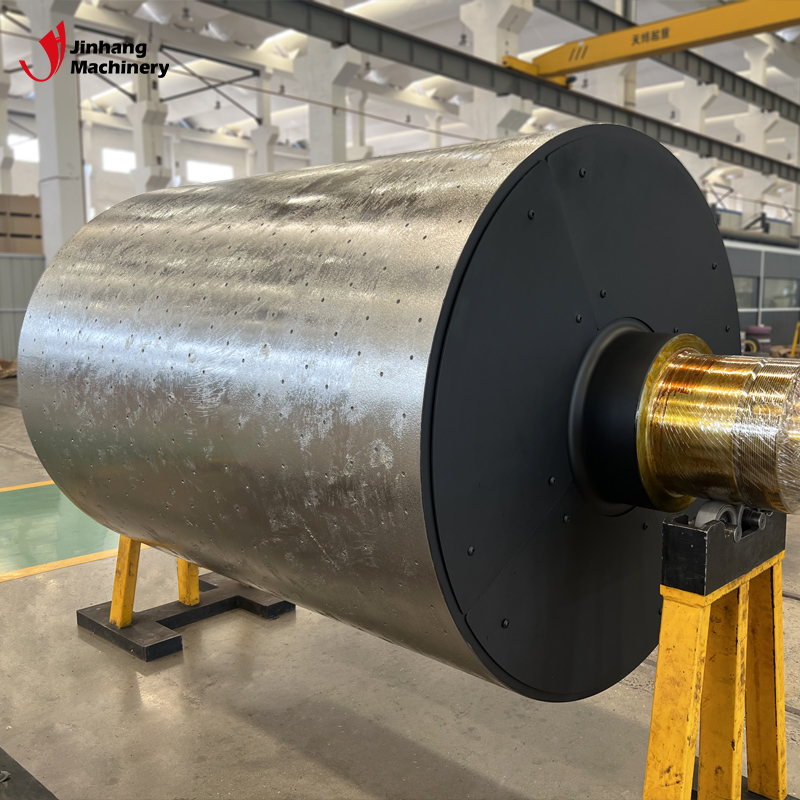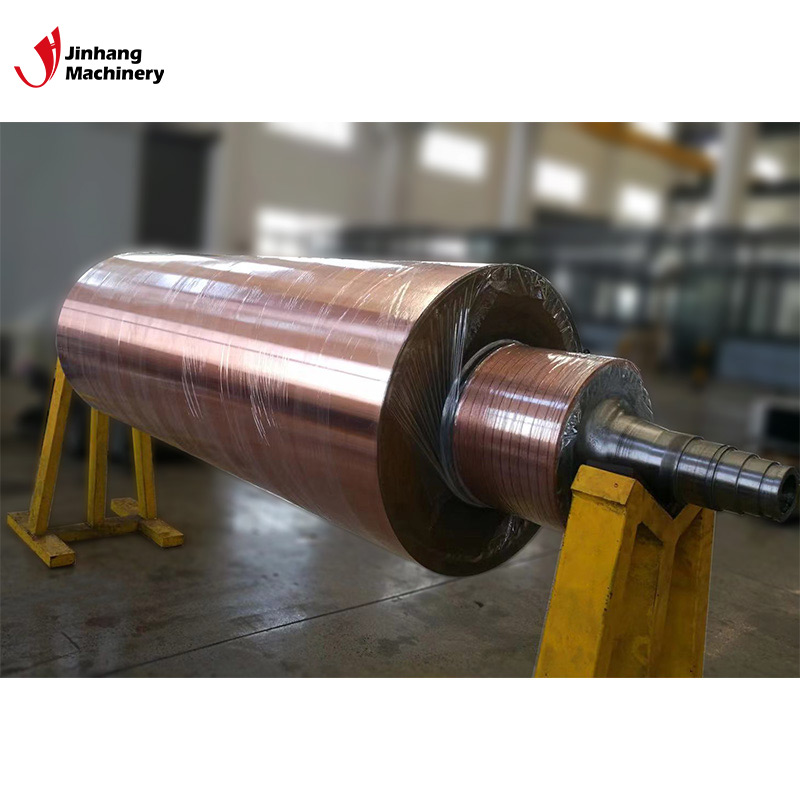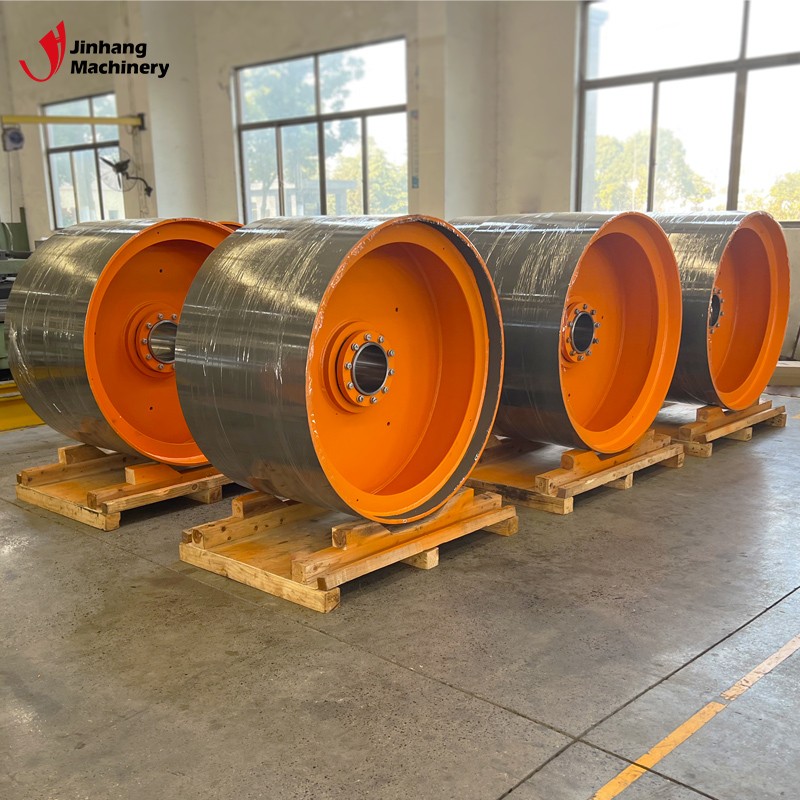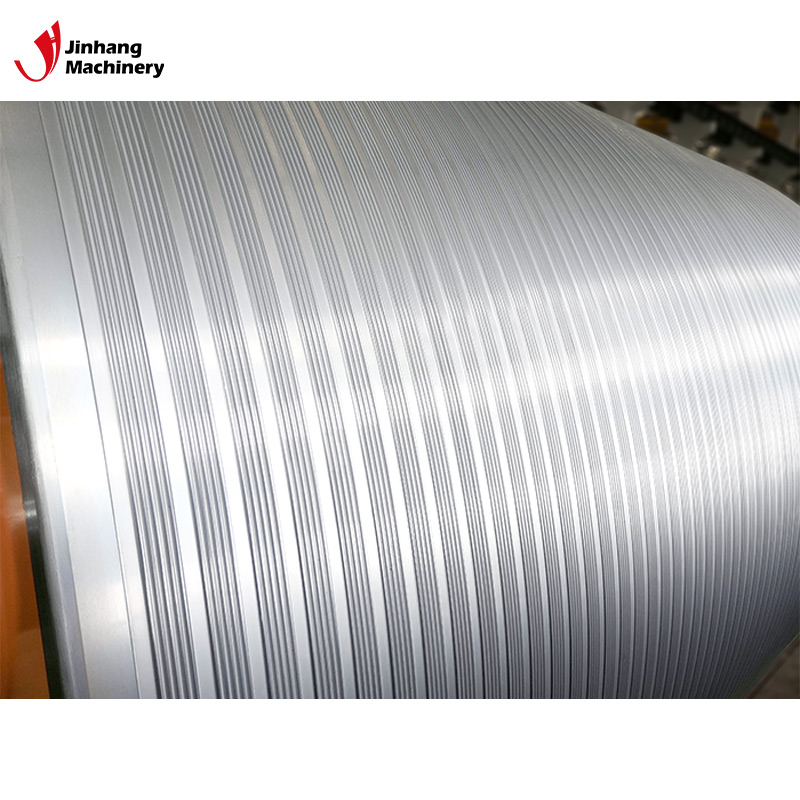What is the best steel for industrial rollers?
Industrial rollers play an important role in various industries. Their main function is to transmit power, transport materials or process through rotation. This mechanical component is ubiquitous in production lines, conveying systems, printing equipment, packaging equipment, metallurgy and textile industries. In order to ensure the performance, durability and stability of industrial rollers, choosing the right material is a crucial step. Among all materials, steel has become the preferred material for manufacturing industrial rollers due to its excellent mechanical properties and durability.
But the problem is that there are many types of steel, each with unique properties, and how to choose the best steel becomes a complex decision-making process. In this article, we will discuss in detail several commonly used steels for making industrial rollers and their respective advantages and disadvantages to help readers better understand what type of steel is most suitable for making industrial rollers in different application scenarios.

What are the material requirements for industrial rollers?
Before discussing the best steel, it is necessary to first clarify the basic material requirements for industrial rollers. Rollers need to withstand various forces during work, such as torque, shear force, compressive stress, etc. In addition, the surface of the roller may frequently contact with materials or other equipment, so the roller material must have the following characteristics:
1. High strength: Industrial rollers are usually used to withstand large mechanical loads, so the material needs to have sufficient strength to withstand high stress during work without deformation or breakage.
2. Wear resistance: The surface of the roller will rub against the material or conveyor belt, which requires the material to have good wear resistance to extend its service life.
3. Corrosion resistance: In many industrial applications, the roller will be exposed to moisture, chemicals or corrosive substances. Therefore, choosing a material with good corrosion resistance can effectively prevent the roller surface from being corroded due to environmental factors.
4. Machinability: Rollers usually require complex manufacturing processes such as turning, grinding, plating, etc., so the material should have good machinability to ensure that precision and quality can be maintained during the production process.
5. Economical: In addition to performance considerations, manufacturing cost is also a key factor. Choosing a steel that can meet the use requirements and is economical and efficient can greatly reduce manufacturing and maintenance costs.

What are the common types of industrial roller steel?
According to the above basic requirements, several common steels are widely used in the manufacture of industrial rollers. The following are several commonly used types of steel, as well as their advantages and disadvantages in the manufacture of industrial rollers.
Carbon steel
Carbon steel is one of the most basic and common types of steel. It is mainly composed of iron and carbon, and the carbon content is usually between 0.2% and 2.1%. According to the carbon content, carbon steel can be divided into low carbon steel (<0.25%), medium carbon steel (0.25%-0.6%) and high carbon steel (>0.6%).
Advantages of carbon steel:
● Carbon steel has high strength and hardness, especially high carbon steel, which can provide sufficient bearing capacity and is suitable for roller applications that need to withstand large loads.
● Low carbon steel has good machinability and is easy to weld, cut and other processing operations.
● Carbon steel is relatively cheap and suitable for cost-sensitive projects.
Disadvantages of carbon steel:
● Carbon steel has poor corrosion resistance, especially in humid or corrosive environments, it is easy to rust. Therefore, carbon steel rollers usually need surface treatment (such as galvanizing or coating) to enhance their corrosion resistance.
● Carbon steel has low toughness and is easily affected by impact, causing the material to break.
Applicable scenarios: Carbon steel is widely used in rollers in conveying systems or general industrial production lines that do not require special corrosion resistance requirements.
Stainless steel
Stainless steel is a steel material with excellent corrosion resistance. The main element of chromium (Cr) is added to form a dense chromium oxide film on its surface to prevent further oxidation and corrosion of the material.
Advantages of stainless steel:
● Stainless steel has very excellent corrosion resistance and can be used for a long time in a humid or highly corrosive environment without rusting.
● Stainless steel has good strength and toughness, can withstand high mechanical loads, and can maintain stable performance in harsh environments.
● Its surface is smooth and has good anti-pollution ability, especially in the food, pharmaceutical and chemical industries.
Disadvantages of stainless steel:
● Stainless steel has a high hardness and the difficulty of processing increases accordingly, so its manufacturing cost is high.
● Stainless steel has poor wear resistance, especially in high friction environments, and the surface is prone to wear.
Applicable scenarios: Stainless steel rollers are usually used in industries with high requirements for corrosion resistance, such as conveying equipment in food processing, chemical processing, pharmaceutical and other industries.
Alloy steel
Alloy steel is steel with other elements (such as manganese, chromium, nickel, molybdenum, etc.) added to it to improve its mechanical properties, wear resistance and corrosion resistance. Depending on the alloy composition, alloy steel can have various special properties, such as high temperature resistance, super hardness, etc.
Advantages of alloy steel:
● Alloy steel has good strength and hardness and can withstand high loads and high pressure environments.
● Depending on the alloy elements, alloy steel can also have excellent corrosion resistance and wear resistance, and adapt to complex working conditions.
● Some high-temperature alloy steels also have excellent high-temperature resistance and are suitable for rollers that need to work in high-temperature environments.
Disadvantages of alloy steel:
● The manufacturing cost of alloy steel is high, especially the alloy steel types containing precious metal elements.
● It is difficult to process and usually requires the use of special tools and equipment for processing.
Applicable scenarios: Alloy steel rollers are mainly used in special industries that require high temperature resistance, strength or wear resistance, such as steel smelting, heavy industry and high temperature processing equipment.
Tool steel
Tool steel is a kind of steel with high carbon content and special heat treatment. It is usually used to make tools and molds, so it has extremely high hardness and wear resistance.
Advantages of tool steel:
● Tool steel has very high hardness and excellent wear resistance, and can be used for a long time in high friction environment.
● After heat treatment, the strength and durability of tool steel are significantly enhanced, which is suitable for high stress and high wear conditions.
Disadvantages of tool steel:
● Tool steel has poor corrosion resistance and is easy to rust, so surface treatment is required when used in corrosive environments.
● Due to its high hardness, it is also very difficult to process and has a high manufacturing cost.
Applicable scenarios: Tool steel rollers are usually used in scenarios that require extremely high wear resistance, such as metallurgy, mining and heavy industry.

How to choose the best steel?
Consider working conditions
When selecting roller steel, you first need to clarify the working environment and working conditions of the roller. For example, does it need to withstand high temperatures? Are there corrosive media? Does the roller surface need high wear resistance? Different working conditions determine the priority of steel.
Economic considerations
Although stainless steel and alloy steel have excellent performance, their cost is high. Therefore, if the budget is limited, you can choose carbon steel or treated carbon steel with higher cost performance. Although this choice sacrifices corrosion resistance and hardness, it is suitable for applications with relatively low working conditions.
Production process and processing requirements
The processing performance of steel will also affect the efficiency and cost of manufacturing rollers. Although steels with higher hardness (such as tool steel and high carbon steel) have excellent wear resistance, they are more difficult to process and often require more advanced equipment and processes. Therefore, in roller manufacturing, it is crucial to choose a steel that meets both working conditions and good machinability.

Buy industrial rolls directly from JH Machinery and experience the benefits of premium quality at factory-direct prices. Established in 2001, our ISO9001-certified factory is equipped with advanced technology to manufacture a wide range of products, including ceramic-coated rolls, polyurethane rolls, and chrome-plated rolls. We cater to industries like metallurgy, automotive, and printing with customizable solutions and wholesale discounts. Partner with JH Machinery for dependable products and excellent service.
